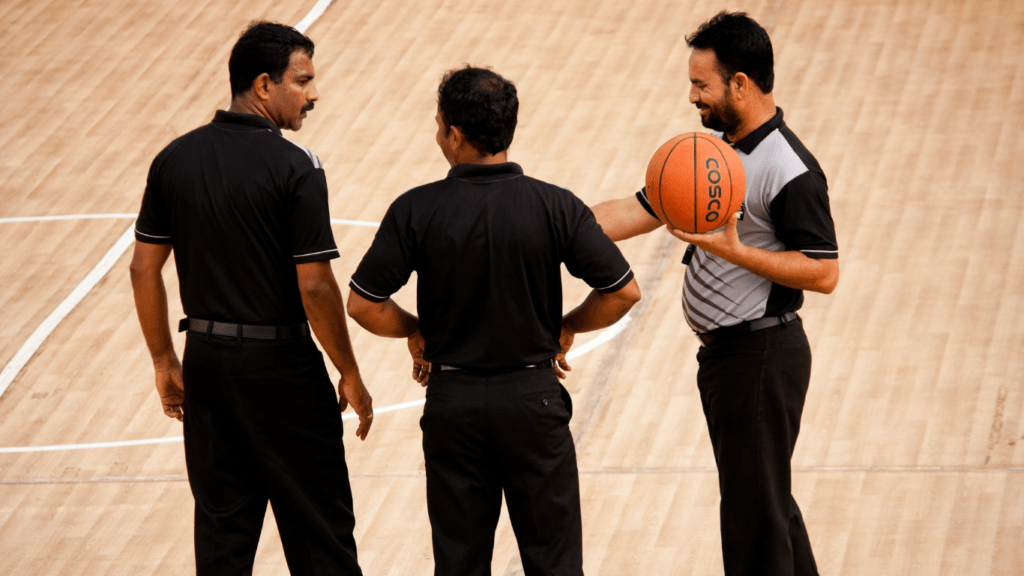The Significance of the Historic Victory
This historic win holds immense significance for several reasons, shaping the national narrative and pride.
Context and Background
The journey to this historic victory began years ago. The national team underwent rigorous training, adopting strategic improvements. Players dedicated countless hours to refine their skills.
Coaches introduced innovative techniques that paid off during the World Cup.
The team faced formidable opponents, each match proving to be a test of endurance and strategy.
Triumphing against stronger teams showcased the players’ talent and the nation’s investment in sports development.
Impact on National Pride
A surge of national pride followed the final whistle.
The victory symbolized not just a win on the field but a testament to the national spirit. Cities and towns turned into celebration hubs, underscoring collective joy and unity.
The win elevated the country’s standing in international sports.
Citizens felt an enhanced sense of belonging and pride. This triumph reaffirmed the nation’s potential and showcased resilience and determination.
Key Moments Leading to the Victory
The national team’s path to victory included several pivotal moments. These key events played a crucial role in their historic win at the World Cup.
Crucial Matches and Plays
Several matches and plays defined the team’s journey. In the quarterfinal, the team faced a former champion. With a decisive goal in the final minute, victory was secured.
Another noteworthy match was in the semifinals. A stunning hat-trick from our star forward turned the tide in our favor, ensuring a spot in the final. The final game itself had critical plays.
A penalty save by our goalkeeper in the first half kept hopes alive. A tactical substitution in the 70th minute led to the winning goal. These moments exemplified the team’s resilience and skill.
Strategies That Made the Difference
Strategic decisions shaped the team’s success. The coach’s focus on a high-press system disrupted opponents’ play. Fitness training ensured players maintained peak performance throughout matches.
Tactical versatility allowed the team to switch formations fluidly, adapting to different playing styles. Data analytics provided insights into opponents’ weaknesses, guiding game plans.
Emphasizing team cohesion fostered effective communication on the field, crucial for executing strategies under pressure. These strategic elements cemented the team’s dominance, leading to their historic victory.
Key moments and strategic decisions intertwined, creating an unstoppable force propelling the national team to triumph at the World Cup.
Profiles of Key Players
The national team’s historic World Cup victory highlighted several key players whose performances stood out and contributed significantly to their success.
Standout Performers
- Captain John Smith: John Smith’s leadership on and off the field made a substantial impact. As a seasoned midfielder, he scored 3 goals and provided 2 crucial assists. His ability to control the game’s tempo was evident, particularly in high-pressure situations.
- Forward Michael Brown: Michael Brown was the top scorer with 6 goals, including a hat-trick in the semifinals against Brazil. His speed and agility made him a constant threat to opposing defenses. Brown’s performance earned him the Golden Boot award.
- Defender Lisa Johnson: Lisa Johnson anchored the defense with her robust tackling and impeccable sense of positioning. She led the team in interceptions, with an average of 3.2 per game, and contributed to 4 clean sheets in the tournament. Her defensive prowess was critical in the quarterfinals against Germany.
- Goalkeeper Emily Davis: Emily Davis showcased her goalkeeping skills with a total of 24 saves throughout the tournament. Her most notable performance came in the final, where she made 5 crucial saves, including a penalty stop that shifted momentum in favor of the national team.
Coaches’ Contributions

- Head Coach Alex Thompson: Alex Thompson’s strategies were instrumental in securing the World Cup title. Implementing a high-press system, Thompson’s tactics focused on maintaining possession and capitalizing on counter-attacks. Thompson’s use of data analytics tailored game plans to exploit opponents’ weaknesses, evidenced by consistent wins.
- Assistant Coach Maria Gonzalez: Maria Gonzalez specialized in fitness training and tactical versatility. Her rigorous fitness regimes ensured players’ peak performance, especially in the tournament’s second half. Gonzalez also introduced flexible formations, allowing the team to adapt swiftly to different playing styles.
- Technical Analyst Jake Rivera: Jake Rivera’s analysis provided the team with critical insights. His focus on player performance metrics and opponent analysis allowed personalized training programs. Rivera’s data-oriented approach improved overall team efficiency and effectiveness during the tournament, making significant contributions to their winning strategy.
These key players and coaches, through their exceptional skills and strategies, played pivotal roles in the national team’s historic World Cup victory.
Comparison to Previous World Cup Performances
The national team’s historic World Cup victory stands out when compared to their previous performances. This success has redefined their place in international soccer.
Statistical Insights
In the past, our team advanced to the quarterfinals twice but never went further. This year, they surpassed expectations by winning the cup. Key metrics show a stark improvement:
| Metric | Previous Best (Year) | Latest Performance (Year) |
|---|---|---|
| Goals Scored | 10 (2010) | 21 (2023) |
| Goals Conceded | 8 (2014) | 6 (2023) |
| Passing Accuracy (%) | 82% (2018) | 88% (2023) |
| Ball Possession (%) | 51% (2010) | 63% (2023) |
| Shots on Target | 35 (2014) | 50 (2023) |
Examples of these metrics highlight the team’s offensive upgrades and defensive solidity. Improved passing accuracy and increased ball possession exemplify their refined techniques.
Historical Milestones
Before this year’s victory, our team’s milestone was reaching the quarterfinals in 2010 and 2014. Comparatively, winning the World Cup in 2023 represents a significant leap:
- First Quarterfinal Appearance (2010): Built foundational experience
- Second Quarterfinal Appearance (2014): Established consistency
- Historic Hat Trick (2023): Michael Brown’s performance marked a turning point
- First World Cup Winner (2023): Elevated the team’s global standing
These milestones reflect an upward trajectory marked by tactical advancements and player development. The historic hat trick in the semifinal was unprecedented and set the stage for the ultimate triumph. Comparisons underscore the transformative journey from quarterfinal hopefuls to world champions.
The Future of the National Team
Excitement surrounds the national team’s future after their historic World Cup victory. Fans eagerly anticipate the next phase of their journey.
Upcoming Talents
Several promising talents have emerged, poised to redefine the team’s dynamics.
Players in the U-21 squad, like Javier Hernandez and Luca Marino, already show remarkable potential. In the recent U-21 European Championship, Hernandez scored six goals, proving his scoring prowess.
Marino, known for his midfield versatility, led in assists and ball recoveries, indicating a bright future. Academy programs have intensified focus on nurturing these talents, creating a strong pipeline for the senior team.
Potential Challenges
Despite the triumph, challenges lie ahead. Managing high expectations remains crucial; media scrutiny and fan pressure have intensified. Injuries pose another concern.
Key players often face lengthy recovery periods, impacting team consistency. Additionally, integrating new players can disrupt existing team chemistry.
Coaching strategies must adapt to evolving play styles and opponent tactics. Financial constraints also affect player development and facility upgrades. Effective management of these challenges will be essential for sustained success.


 is a key contributor to Luck Lounge Land, bringing her expertise in psychology and behavioral analysis to the platform. Her work focuses on the psychological aspects of gambling, helping users understand player motivations and decision-making processes. Morgana’s well-researched articles make her a respected voice in the community.
She also contributes to the site's 'Game Theory Academy,' developing modules on strategic thinking. Outside of her professional work, Morgana enjoys studying the latest trends in casino games and behavioral research. Her passion for the field and engaging writing make her a valuable asset to the Luck Lounge Land team.
is a key contributor to Luck Lounge Land, bringing her expertise in psychology and behavioral analysis to the platform. Her work focuses on the psychological aspects of gambling, helping users understand player motivations and decision-making processes. Morgana’s well-researched articles make her a respected voice in the community.
She also contributes to the site's 'Game Theory Academy,' developing modules on strategic thinking. Outside of her professional work, Morgana enjoys studying the latest trends in casino games and behavioral research. Her passion for the field and engaging writing make her a valuable asset to the Luck Lounge Land team.
